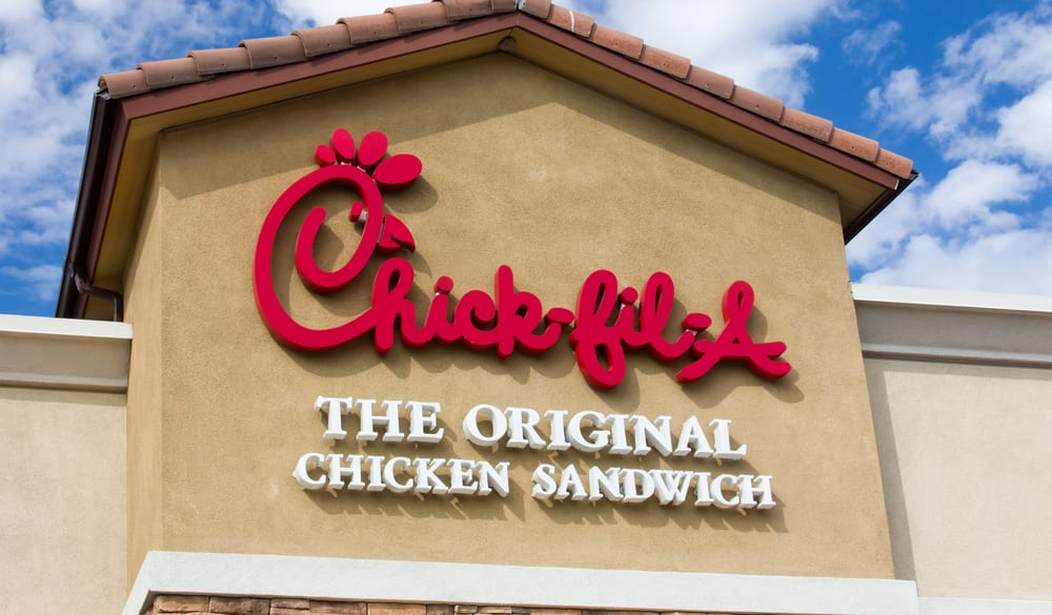By now you’ve heard the news: San Antonio, Texas, has banned Chick-fil-A from San Antonio International Airport. The ban, passed by the city council in the form of a vendor contract, is based on a hit piece by the left-wing Think Progress. This the latest attempt by some on the left to ostracize and demonize Chick-fil-A over statements made by its founder or for its charity work — matters that have nothing to do with its business competence.
City councilman from district 1, Roberto Trevino, made the move to punish Chick-fil-A, saying “With this decision, the City Council reaffirmed the work our city has done to become a champion of equality and inclusion. San Antonio is a city full of compassion, and we do not have room in our public facilities for a business with a legacy of anti-LGBTQ behavior.”
“Everyone has a place here, and everyone should feel welcome when they walk through our airport. I look forward to the announcement of a suitable replacement by Paradies,” Trevino added.
Everyone, that is, except anyone who disagrees with Think Progress — which is an agenda-driven site funded by the left.
Let’s be clear: Chick-fil-A does not and never has discriminated in its hiring or service practices. No one is even accusing it of that. No one is accusing America’s most popular fast-food chain of malfeasance of any kind. The issues in play are free speech and free association issues — constitutional issues. Chick-fil-A says San Antonio never reached out prior to the ban, and says it hopes to have a conversation with the city.
Several cities, all run by Democrats, as San Antonio is, have attempted to ban Chick-fil-A in the past for similar reasons. In 2012, Chicago tried denying Chick-fil-A a permit to expand there. Liberals and conservatives alike slammed the city, and it backed down. Boston and Denver also tried banning Chick-fil-A, and they also eventually backed down.
At that time, constitutional scholar Eugene Volokh spelled out the First Amendment issues with government banning a business based on ideology.
[D]enying a private business permits because of such speech by its owner is a blatant First Amendment violation. Even when it comes to government contracting — where the government is choosing how to spend government money — the government generally may not discriminate based on the contractor’s speech, see Board of County Commissioners v. Umbehr (1996).
At that time, the American Civil Liberties Union also condemned Chicago’s attempt to ban Chick-fil-A.
I happen to know Councilman Trevino. We served together on the Alamo Master Plan Management Committee, a committee on which he still serves. Councilman Trevino is a thoughtful man. But thoughtful men can be wrong. He may not have considered how actions and statements such as this play into the distrust of him and the city council when it comes government generally and to its handling of the Alamo specifically.
Texas is a conservative state, and the Alamo is its most important battle site. The Alamo is owned by the state, but its historic footprint is mostly owned by the city as is Alamo Plaza today. It is in Trevino’s district, and is undergoing a historic renovation and preservation effort. Texans outside San Antonio have long suspected the city wants to impose a politically correct version of events that downplays the 1836 battle that made the Alamo the icon of Texas liberty. Past comments by former San Antonio mayor and now presidential candidate Julian Castro’s mother — stating she hates the Alamo and all it represents — did not help. In banning Chick-fil-A for obviously political reasons, the city has probably stoked those suspicions further. Virtue signaling in one direction creates division and suspicion in another.
San Antonio is named for Saint Anthony, the patron of lost and stolen articles. In taking this action against Chick-fil-A, San Antonio is losing its tolerance and inclusiveness. After all, how “inclusive” can its actions be when the city has gone out of its way to target and exclude a business over politics?
San Antonio’s action will probably hurt its image more than it will hurt Chick-fil-A. The city now has a national backlash on its hands. Back in 2012, when liberal-run cities first attacked Chick-fil-A, the restaurant chain posted the strongest sales day in its history.









Join the conversation as a VIP Member